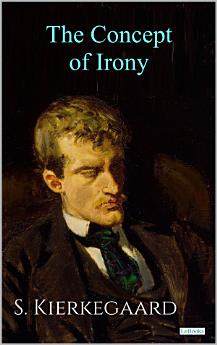The Concept of Irony
About this ebook
By analyzing irony in its historical, philosophical, and existential aspects, Kierkegaard outlines the boundaries between irony as a figure of speech and irony as an attitude towards life. His critique of the German Romantics highlights his rejection of empty abstractions and his commitment to lived reality.
Since its publication, The Concept of Irony has been recognized as one of the most important works on the theme, influencing not only philosophy but also literary and theological studies.
The enduring relevance of this work lies in its ability to provoke a radical reevaluation of the role of irony in intellectual life and existence. By investigating irony as a path to spiritual freedom, Kierkegaard invites readers to reconsider philosophy as an activity of self-knowledge and transformation, inaugurating a new way of understanding the individual and their relationship with the world.
About the author
Soren Aabye Kierkegaard was a Danish philosopher, theologian, and writer, widely recognized as the father of modern existentialism. Born in Copenhagen, Denmark, Kierkegaard is known for his profound reflections on existence, subjectivity, faith, and irony, as well as for his enduring influence on philosophy, Protestant theology, and literature. His work The Concept of Irony marks the beginning of his philosophical production and is considered fundamental for understanding his intellectual trajectory.
The Concept of Irony represents the initial phase of Kierkegaard's thought, being an academic work that examines the concept of irony in Socrates, particularly in contrast to how Plato, Xenophon, and Aristophanes treated the theme, as well as the German Romantic approach. Kierkegaard argues that Socratic irony was an existential expression, a form of spiritual freedom in the face of Athenian society. For him, irony was not merely a rhetorical device but a way of life that revealed the essential negativity inherent in authentic philosophical thought.
Although less known than his later works, The Concept of Irony is essential for understanding the development of Kierkegaard's thought. It lays the foundations for his critique of speculative philosophy and his commitment to subjectivity as the center of existence. His analysis of Socrates inaugurates the existential perspective that would mark Either/Or, Fear and Trembling, The Sickness Unto Death, among other writings.
Kierkegaard's impact extended widely, influencing thinkers such as Friedrich Nietzsche, Martin Heidegger, Karl Jaspers, and Jean-Paul Sartre, as well as theologians like Karl Barth and Paul Tillich. His insistence on subjectivity, individual choice, and existential responsibility transformed conceptions of ethics, religion, psychology, and literature.







